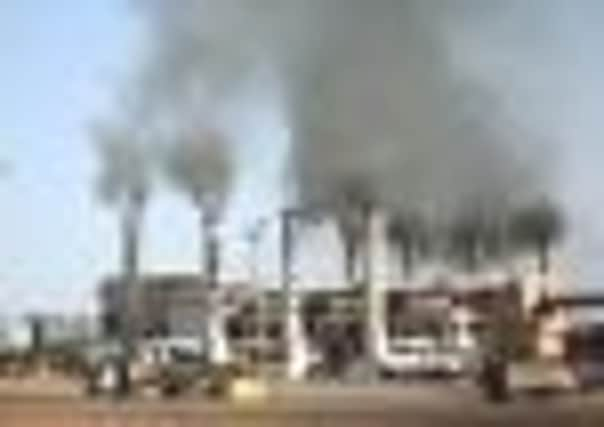Africa and the Middle East offer big opportunities for enterprises


MANY Yorkshire businesses, including small and medium-sized enterprises, are venturing into the Middle East and Africa (MEA) region to escape domestic challenges in this country and the eurozone.
Oil and gas remain key economic drivers in parts of this region, and many areas are characterised with young and growing populations, which require major investment in infrastructure, healthcare and education.
Advertisement
Hide AdAdvertisement
Hide AdThe MEA is home to some of the fastest growing economies in the world with Iraq, Libya and Ghana counted among them – though it is worth noting that some nations such as Rwanda have achieved high growth rates as a result of having a low GDP to begin with.
In the third quarter of 2012, exports to the Middle East and North Africa by Yorkshire and the Humber companies hit £184m, from £163m in the previous quarter. Meanwhile, Yorkshire and the Humber exports to Sub-Saharan Africa were worth £109m, down from £134m previously.
Total exports from this region reached nearly £4bn, up from £3.7bn in the second quarter.
Mark Robson, UK Trade & Investment’s (UKTI) international trade director for Yorkshire and the Humber, said: “The UK has strong trade links throughout the [MEA] region, with many relationships dating back hundreds of years.
Advertisement
Hide AdAdvertisement
Hide Ad“British products, services and expertise are held in high regard, and we have seen a significant increase in recent years in the number of businesses from Leeds, Sheffield, Hull and beyond that are capitalising on that demand to secure deals and forge lucrative relationships.”
Although there has been, and continues to be, considerable unrest in some quarters of the MEA, that in itself creates opportunities, said Mr Robson – for reconstruction work in the short term, twinned with long-term opportunities as changing governments and regimes look to instigate a cultural, social and economic revolution.
He said: “In the GCC [the Gulf Cooperation Council, located in the Arabian Peninsula], significant opportunities exist for UK companies as oil rich states such as Saudi Arabia, Abu Dhabi and Qatar seek to diversify their economies.
“To facilitate this, huge investments are being made in education at all levels, representing good opportunities across the board. Healthcare and large-scale infrastructure projects are also key targets as governments across the GCC continue to make major investments to accommodate their growing populations.”
Advertisement
Hide AdAdvertisement
Hide AdIn the Maghreb, located in the north of Africa, construction and infrastructure projects also provide opportunities, most notably through the high-speed Maghreb rail network that will link Casablanca to Tripoli via Algiers and Tunis.
Unrest across Libya, Tunisia and Egypt has had an impact on UK exports, which UKTI says are falling. But it says Egypt, keen to establish itself as a regional hub for IT and communications, and the rest of Maghreb is set to remain export-dependent for the foreseeable future.
In the Levant region, Iraq is starting to build the institutions and infrastructure to enable it to exploit its huge oil reserves, while Lebanon has a dynamic pharmaceutical and healthcare market worth more than £370m per year.
Meanwhile, South Africa is Africa’s economic powerhouse, contributing 25 per cent of its GDP, while producing more than 40 per cent of its industrial output and accounting for 50 per cent of its spending power.
Advertisement
Hide AdAdvertisement
Hide AdMr Robson added: “As one of the UK’s top five trading partners, South Africa continues to provide considerable opportunities for British companies. This trend looks set to continue as the government invests billions of pounds in large-scale infrastructure projects across the board.”
South Yorkshire-based Assured Fire and Security has benefited from trade with overseas markets, last year winning a £2m African contract, which is due to complete in February.
The business, which designs, installs and maintains fire safety and security systems, won the deal with sugar production company Kenana, which is based in Sudan. It followed contracts in Ghana, Nigeria and Afghanistan.
Simon Stokes, managing director of the £4.6m turnover firm, said: “We tend to look for any country that has not got the skills there. Because obviously if they’ve got the skills in that country why do they need to import at a more expensive British cost?
Advertisement
Hide AdAdvertisement
Hide Ad“So it’s anywhere where they rely upon British expertise. In the fire safety industry British expertise is looked upon with high regard.
“We’re looking for anywhere that’s a developing country, that’s growing and wants to grow its infrastructure that realises there’s a risk to their business or organisation through crime or fire and they haven’t got the skills and the expertise to be able to design, install and maintain systems.”
Investment opportunities in Sudan, Africa’s largest country, exist in sectors such as agriculture, energy, mining construction, and infrastructure.
Another Yorkshire firm expanding globally is Bradford-sausage producer The British Premium Sausage Company. The markets in which it operates include Ghana, Jordan and Qatar, as well as other parts of the globe, and export now accounts for a third of the firm’s annual £1.5m turnover.
Advertisement
Hide AdAdvertisement
Hide AdDirector Ian Cundell said the firm targets the British expat market in places such as Jordan and Qatar. In Ghana, the company’s sausages end up in luxury hotels which want to provide “a proper Western breakfast” for tourists.
Mr Cundell said: “It’s a daunting challenge before you get into exporting but when you understand and properly embrace what is required it can be very rewarding.”
In partnership with Heathrow, the Yorkshire Post is running a special series highlighting global trade opportunities for Yorkshire companies. In the coming weeks, the Yorkshire Post will look at markets including the Americas, Australia and Oceania, Asia and Europe.